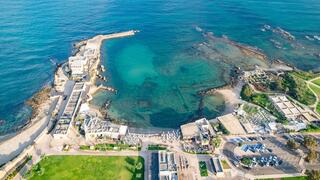
November 21, 2024 This article has been reviewed according to Science X's editorial process and policies . Editors have highlightedthe following attributes while ensuring the content's credibility: fact-checked peer-reviewed publication proofread by Delft University of Technology In a new npj Ocean Sustainability article , ten researchers advocate the use of imagination in tackling the climate crisis. They focus specifically on urbanizing river deltas, which are of great social and economic importance and highly vulnerable to climate change.
"We scientists should not merely outline doomsday scenarios," says Professor Chris Zevenbergen. "Create a vision for people to believe in and work towards." Due to the climate crisis, urban river deltas are facing hazards such as rising sea levels, extreme weather events, and soil subsidence.

Prosperous regions like the Netherlands are facing increasing costs and complexity for improving systems. Deltas in low- and middle-income countries additionally struggle with rapid urbanization and limited resources. Traditional models are often insufficient to prepare deltas for our unpredictable future, necessitating more flexible approaches.
"Fortunately, the scientific community is already showing a greater focus on optimism and visions of the future, which helps to inspire and motivate people." According to Zevenbergen and his co-authors, scientists should more often use imagination and "design-based research." "Ask the wider society: what do we want our country to look like in 100 years? What do we really care about? And then visualize possible futures," says Zevenbergen.
In this way, we encourage civic engagement and make climate adaptation both tangible and motivating. "Ask the wider society: what do we want our country to look like in 100 years? What do we really care about?" Inspiration from the Netherlands The Netherlands can serve as a role model for deltas worldwide, according to the authors. "Take for instance Johan van Veen, visionary designer of the Delta Works," says Zevenbergen.
"Johan was not thinking in years, but in generations. He had deep knowledge of natural processes such as sedimentation. And when the 1953 North Sea Flood struck, he had an appealing vision of the future ready at hand.
" Or consider the recent Room for the River program, which applies natural solutions to increase the capacity of rivers while simultaneously improving biodiversity. These words of praise must come with a caveat. Zevenbergen says, "Many Dutch people considered the Delta Works a permanent solution, but according to Johan they were always meant as a necessary step in a process.
Today, we need a new long-term vision." Fortunately, work is underway on new visions for our coastal areas, including three scenarios for 2100. Zevenbergen asks, "Do we want to preserve our current coasts, flexibly adapt to change, or give way completely to the rising sea? This is how we use the power of design and imagination.
"Johan van Veen did not think in years, but in generations; he had deep knowledge of natural processes; and he had an appealing vision for the future." Discover the latest in science, tech, and space with over 100,000 subscribers who rely on Phys.org for daily insights.
Sign up for our free newsletter and get updates on breakthroughs, innovations, and research that matter— daily or weekly . Measures for science, policy, and education The authors offer clear advice to scientists, policymakers, and universities: strengthen the role of design in delta management. Scientists should integrate imagination and interdisciplinary approaches into climate adaptation research.
Zevenbergen says, "Be like Johan van Veen. Unite professional knowledge with long-term thinking, visualization, and an understanding of nature." Policymakers should invest in vision and creative research, because "after all, these plans will amount to billions of euros when implemented.
" And universities should fuel creativity and include "design thinking" in the curriculum. "We want students with the ability to create and the motivation to realize visions of the future : who seek large-scale and unique solutions," says Zevenbergen. More information: Chris Zevenbergen et al, Uniting imagination and evidence by design to navigate climate survival in urbanizing deltas, npj Ocean Sustainability (2024).
DOI: 10.1038/s44183-024-00094-2 Journal information: npj Ocean Sustainability Provided byDelft University of Technology.














